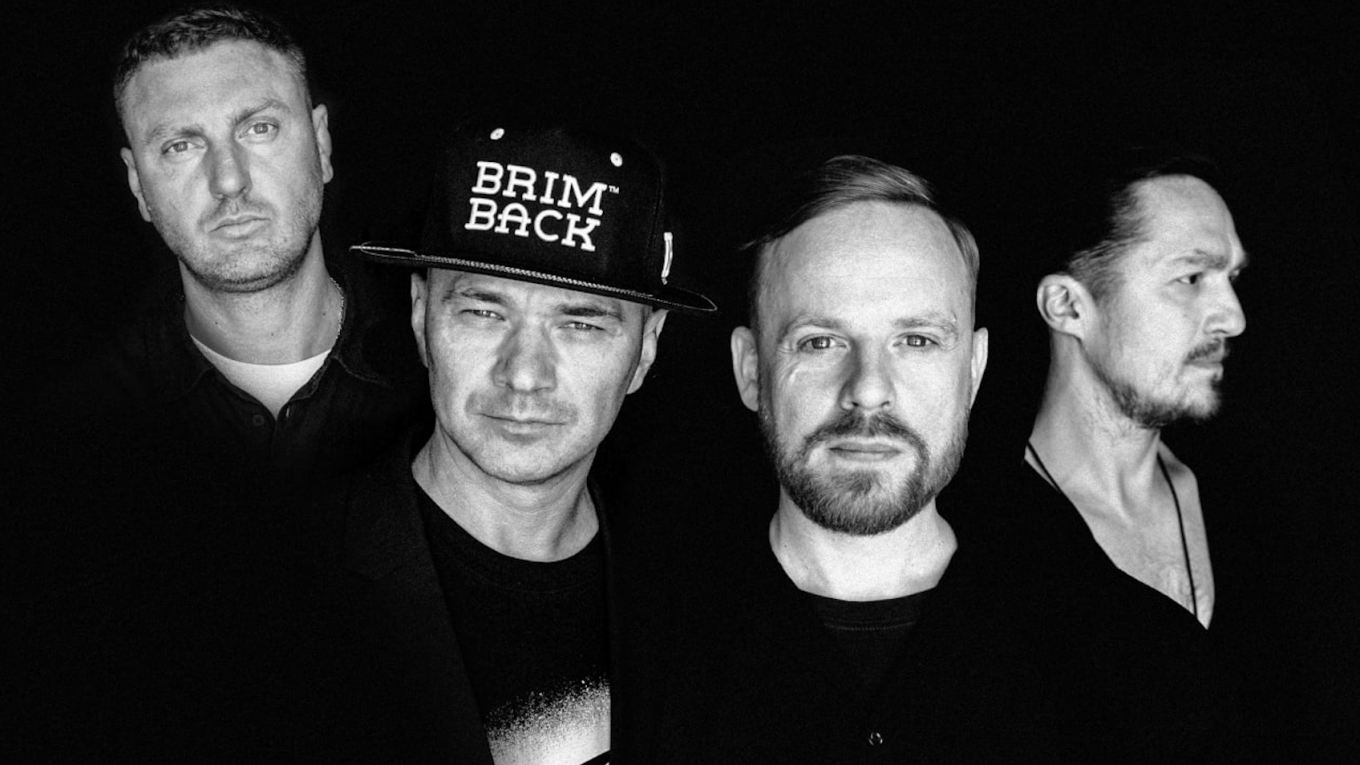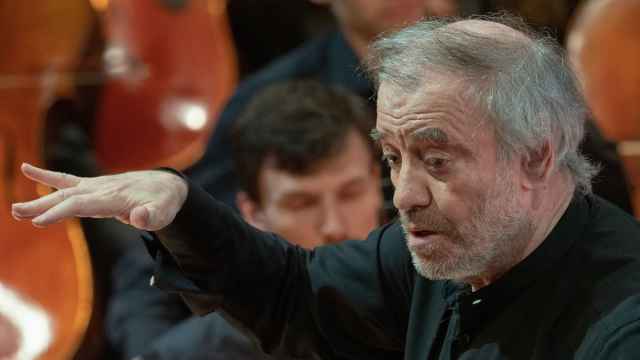When Russian rap group in exile Kasta released its new album, ironically titled “New Rap Releases from Abroad,” in September 2024, it was immediately blocked by Roskomnadzor on all Russian platforms because of its anti-war lyrics.
The refrain of one song, “Baggage,” reworks a line from one of Kasta’s most famous songs, their 2001 single “Na poryadok vyshe” (Higher by an Order) to subtly change its meaning.
Where the original song’s lyrics say "Don't forget your roots, remember. There are things higher by an order (far greater), you hear?”, on “Baggage,” Kasta cleverly inserts the word “but”: “Don't forget your roots, remember, but there are things higher by an order, you hear?”
The Moscow Times spoke to the rappers from Rostov-on-Don about this track, their new album, life abroad and future plans:
Andrei Muchnik: How did you come up with the concept for this album?
Vladi: Our goal was very specific — to fully express our perception of Russia's attack on Ukraine, to somehow make an artistic statement on all the related issues.
Shym: At the same time, to be honest, we couldn’t write about anything else. All of that was just simmering inside of us, so this concept came together in a very natural way.
Vladi: When we started, we also thought about how to sway those Russians who remained undecided, to bring them over to the side of pacifism. I still hope, deep down, that we managed to do that, even on some small scale.
Shym: And we wanted to document the moment — how we lived through it, what we saw — because we are all witnesses to a catastrophe. It’s crucial to record this, at the very least, to help prevent it from happening again in the future.
Vladi: There are very few songs written about this period. Even artists who have consciously left Russia and are openly against the war find it hard to dedicate an entire album to this topic. They might have individual songs or statements within songs, but no albums. We understand that this isn’t due to hesitation. It’s genuinely difficult. It’s hard to start talking about this, and hard to avoid turning your music into a news website. So, we took on a rather challenging task.
AM: I just loved how you added the word ‘but’ to your most famous line about roots, from the song ‘Higher by an Order,’ practically changing its meaning.
Vladi: It was just a lucky find. And it became obvious that it’s the shortest answer — so short it’s hard to come up with something more concise. It’s a response to criticisms we sometimes hear from longtime fans who love the original song, which is now 25 years old.
AM: What kind of criticism from fans?
Vladi: That we’ve forgotten our roots, that we left and betrayed them.
Shym: Yeah, people think it’s clever to write something like, ‘Don’t forget your roots.’ They think it’s a biting remark, but most of the time, that’s the kind of comment I get. To them, our leaving is equivalent to betraying Russia. If we unpack the phrase ‘don’t forget your roots, but remember,’ it could unfold into something like this: basic, universal human values are higher than some form of healthy nationalism.
Khamil: I’m glad that this refrain stood the test of time and changed in such a way that it captures the most important things in just one line.
Shym: I should also clarify that the word ‘but’ was Vladi’s idea. In fact, if you analyze the original version — ‘Don’t forget your roots, remember, there are things far greater’ — even there, everything makes sense: roots are below, and naturally, there are things higher than the roots — stem, crown... But I think very few people interpreted the refrain that way, so we had to make it more explicit.
AM: How have your political views evolved? I mean, I understand that this is the first album that Roskomnadzor banned, but even in your earlier albums, there were songs with, let’s say, some irony about those in power.
Vladi: Roskomnadzor’s ban of our album hasn’t affected our political views (Everyone laughs). We remain democrats and liberals, humanists with some sympathy for a certain degree of socialist efforts by the government.
Shym: Regarding Russia, for us, everything had been pretty clear for quite some time.
AM: OK, but as far as I understand, you weren’t planning to emigrate initially and even tried to hold some concerts after the war started.
Vladi: I wasn’t planning to emigrate because my wife was pregnant at the time. But once our daughter was born, we left. We held a few concerts in the first 10 days after being banned for condemning the invasion of Ukraine. I mean we were added to the list of banned artists in Russia. We managed to perform at a few concerts that weren’t canceled. After that, there were no more concerts — just a few private performances, and that was it.
I remember asking myself: ‘What can I do to stop the war?’ During my regular jogs in Moscow, I wore a sign that said ‘No to war’ instead of a race number and shared it on social media. That was the first thing that came to mind.
Then I started working on an anti-war album. As a rapper, my tools are my words. The album is called ‘February Drags On.’ I wrote it pretty quickly but only released it after I emigrated because I believe if I had released it in Russia, I probably wouldn’t have been able to release anything else after that.
Shym: I left right after the war started — well, actually, as soon as we were added to the list of banned artists. It became clear that things were getting serious. Concert organizers started getting calls from the FSB, telling them, ‘You’re not going to hold their concert.’ Why? ‘Because.’ Officials from the presidential administration called some venues, as did city halls.
I realized that I was losing my job, my platform — the ability to speak my mind openly on stage — as I’ve always done. I also understood that ultimately I might lose my freedom. For me, there was no choice. Around March 5, I left Russia and haven’t returned since.
It was a difficult period when my bandmates were still in Russia. I wanted to speak out, but I had to choose my words carefully. I gave interviews, but I used language that wouldn’t bring any repercussions to the guys who were still in Russia.
Khamil: My story is actually the simplest. I left in 2021 because I just felt like moving to a new country. My wife, our kid and I moved to Portugal.
Shym: Khamil usually adds that the desire to change countries didn’t come out of nowhere. (Everyone laughs).
Khamil: Well, yeah, obviously. Things in the country had just gotten too bad. It became clear to us that we wanted to look for better conditions elsewhere.
Shym: That suffocating feeling, like there wasn’t enough oxygen, had been around since 2019 already.
Khamil: Yes, we started thinking about it in 2019, and by 2021, it was clear that it had to be done.
AM: I feel like the song ‘Emigrant to Emigrant’ is about your personal experience abroad, but doesn’t it also seem a bit naive to call all the new emigrants ‘brothers’?
Vladi: I believe that the overall picture is pretty close to what’s described in this song, because the emigrants I see – and I see them practically everywhere, lots of people from Russia, Ukraine, Belarus – they are, for the most part, ready to help one another. And they largely agree with each other on the most important points regarding what’s happening. To be honest, I’ve never seen the kind of unity and solidarity in Russia that I see among emigrants.
AM: Is ‘Space and Crap’ a reference to the novel ‘Norma’ by [contemporary Russian writer] Vladimir Sorokin?
Vladi: No, the idea of presenting propaganda consumption as an allegory for eating crap came from Shym. Since then, I’ve come across the same metaphor in two or three works by other authors. Apparently, it’s not such a strange metaphor — it’s actually a pretty accurate analogy.
Shym: It’s simply an allegory for the Kremlin’s idea that Ukrainians are not human, that they’re enemies and fascists who must be killed. Just a few years ago, we would have shrugged and dismissed this as nonsense, as absurdity. But propaganda’s efforts have borne fruit, and this idea has taken root. But it’s just as ridiculous and inappropriate as the suggestion to eat crap.
AM: How come one of the songs is written in collaboration with Mikhail Segal [a famous film director]?
Vladi: Mikhail Segal has truly made a significant contribution to how people perceive Kasta. He’s directed about seven of our music videos. He’s also a film director, a writer, and a musician. I’ve acted in his films, read his books, and we’ve spent a lot of time talking, so I think we’ve exchanged ideas and perspectives.
AM: But was this the first time he wrote lyrics for one of your songs?
Vladi: Yes, it was the first time, and it was an important experience for him. He brought us all together in Belgrade, where each of us took time to reflect on his work.
AM: What are your plans for the future?
Shym: We’ll continue touring. A big milestone for us is performing in Australia for the first time — we’ll play three concerts there. We’re also busy working on music videos for the album; there will be several, and as always, Mikhail Segal is directing one of them.
We’re also considering a new album, but nothing concrete at the moment.
Vladi: We’re not going back to Russia; we haven’t returned even once, and we don’t plan to. What’s happening there is pure Putinism.
Soon, we’ll play what we once considered dream concerts — in London and Paris. I mean ‘dream’ in the sense that, back in Russia, we could only fantasize about performing in London one day and Paris the next. And now, under these circumstances, it’s actually happening.
A Message from The Moscow Times:
Dear readers,
We are facing unprecedented challenges. Russia's Prosecutor General's Office has designated The Moscow Times as an "undesirable" organization, criminalizing our work and putting our staff at risk of prosecution. This follows our earlier unjust labeling as a "foreign agent."
These actions are direct attempts to silence independent journalism in Russia. The authorities claim our work "discredits the decisions of the Russian leadership." We see things differently: we strive to provide accurate, unbiased reporting on Russia.
We, the journalists of The Moscow Times, refuse to be silenced. But to continue our work, we need your help.
Your support, no matter how small, makes a world of difference. If you can, please support us monthly starting from just $2. It's quick to set up, and every contribution makes a significant impact.
By supporting The Moscow Times, you're defending open, independent journalism in the face of repression. Thank you for standing with us.
Remind me later.






